When you speak about Christmas in Italy, there are countless treats that end up on our tables during this time of the year.
Each area has its own specialties, but there’s a dolcetto that is traditionally prepared in many Italian regions, and that is torrone.
Born in China and spread in the Mediterranean area thanks to the Muslims, torrone was originally prepared just with honey, egg whites and nuts, and only later the sugar was added to the recipe.
Today it is still produced with the same ingredients from Lombardy (Cremona town especially) to Piedmont, from Bagnara Calabra to San Marco dei Cavoti (in Campania) or in Sicily. There are different types, according to the nuts used and the type of torrone paste: duro (hard or crumbly) where the torrone paste is toasted for about 12/15 hours and morbido (soft).
The soft nougat is the one you can prepare at home. The recipe is easy, but you need to be accurate and coordinate more steps in the same time. It’s necessary to use two thermometers, and one has to be suitable for sugar, since it has to reach the temperature of 144°C; the other one could be the meat thermometer you can buy at Ikea.
Do not start preparing torrone, without having measured all the ingredients already and keep all the tools near you.
It’s important that the sugar syrup reaches 144°C in the same time the honey reaches 123°C, since they are added to the egg whites one following the other.
If I didn’t scare you too much, here it is the recipe: it’s from Montersino (an Italian pastry chef), but I reduced the quantity of nuts and I omitted the glucose, and I increase the total quantity of caster sugar.
This recipe is part of the December edition of Cucina Conversations about Christmas; head to the end of the post for the other recipes!
TORRONE MORBIDO, SOFT NOUGAT
370 g caster sugar
120 g water
240 g acacia honey
60 g egg whites
30 g caster sugar
250 g almonds
150 g hazelnuts
2 sheets of ostia (host)
1.The day before separate the egg whites and the egg yolks. use the yolks for another preparation, and keep the whites at room temperature.
2.The day you make torrone: toast the nuts in the oven at 120°C for about 10 minutes, then reduce the temperature at 50°C and keep them warm until you add them to the torrone paste.
3.Take two small pots: in one put the water and 370 g of sugar, in the other one add the honey, which you will keep aside at this moment. Heat up the sugar and water and when it reaches 120°C, switch on the stand mixer at medium speed, previously prepared with a bowl with egg whites and the 30 g of sugar and a whisk.
4.Right after switching on the stand mixer, put the honey over low heat and check the temperature with a thermometer. You have to stop the honey at 123°C, and the sugar syrup at 144°C (at the same time).
5.When the liquids are at the right temperature and the egg whites are partially foamed, slowly pour first the honey and then the sugar syrup in the egg whites, and do continue whisking.
6.Keep whisking for about 8-10 minutes and stop when the torrone paste is lukewarm (about 60-65°C). Substitute the whisk with the flat beater and at low speed add the warm and toasted nuts.
7.Place a sheet of ostia over a board or in an oven tray, pour over the torrone and with wet hands gently press the mixture and give it a shape. Lay another sheet of ostia, and put some weight over it (so you get a nice and firm shape). Let it rest for about 12 hours at room temperature and then cut into pieces of the size you want, using a slightly wet serrated knife. At the beginning nougat will be sticky, but after two or three days it will reach the perfect consistency.
Enjoy!
The other Cucina Conversations’s recipes about Christmas:
- Ciascuni, Sicilian fig and nut dolcetti by The Heirloom Chronicles;
- Cioccolata calda by Pancakes and Biscotti;
- Risotto al Prosecco served as a main at Italian Kiwi
- Spatzle, a northern Italian dish Turin Mamma
- Struffoli, balls of pastry covered in honey by Flavia’s Flavors
- Fichi Secchi Ripieni, stuffed dried figs at Marmellata di Cipolle
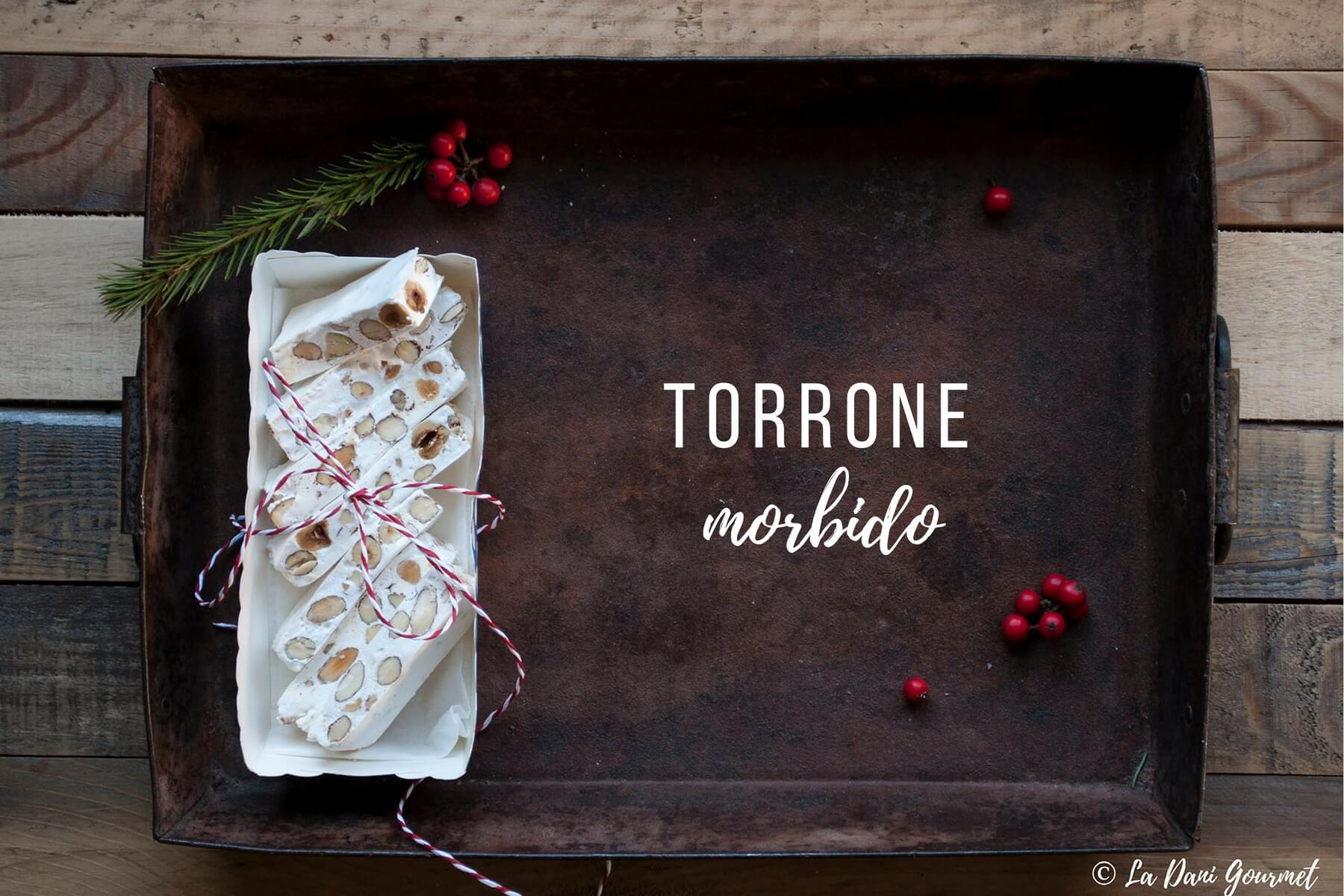




 Based on 1 Review(s)
Based on 1 Review(s)This post is also available in: Italian

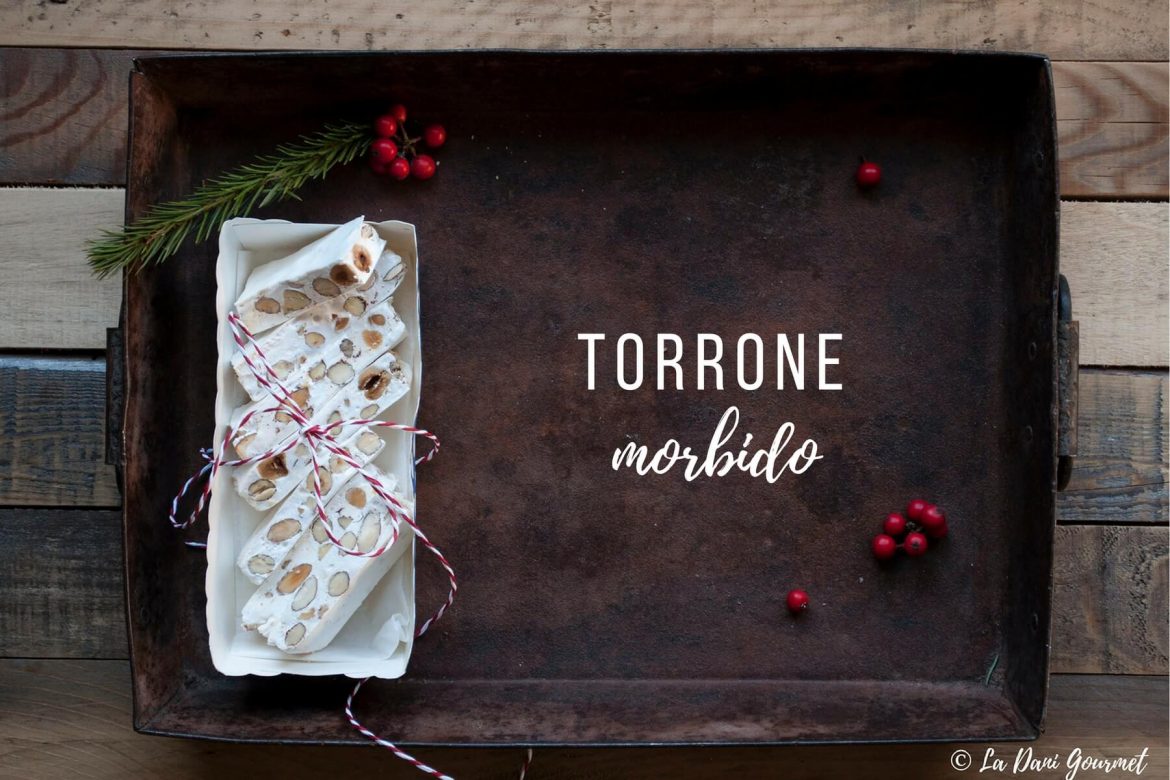
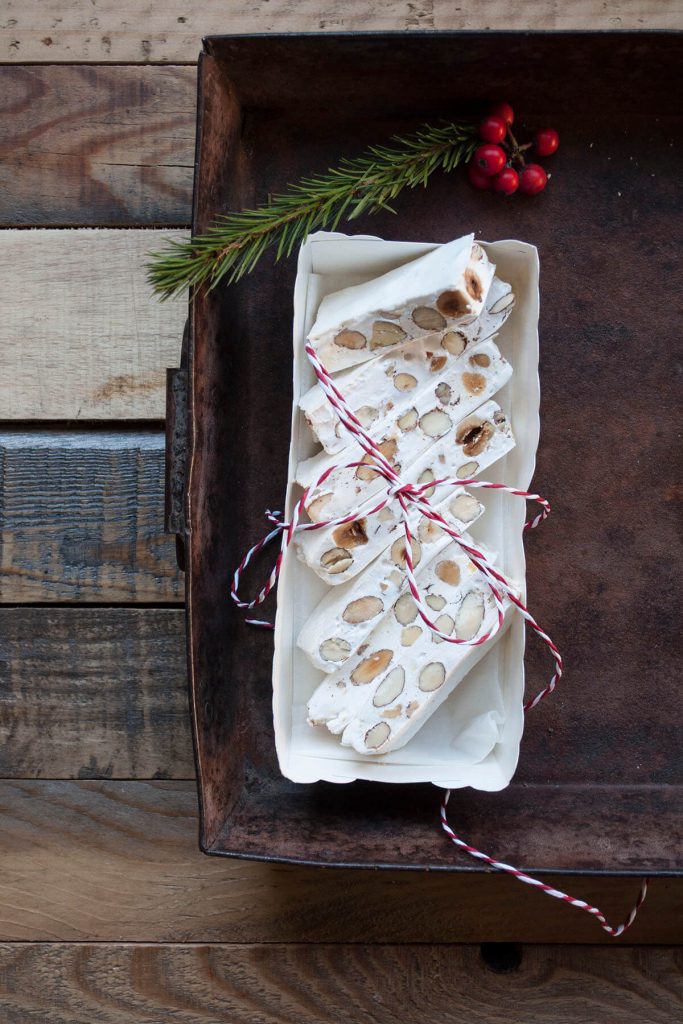

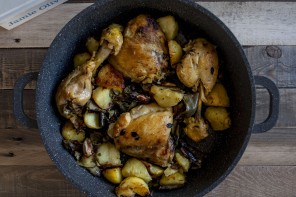

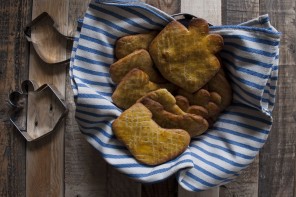
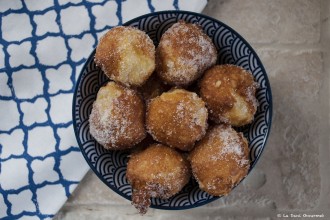
Divine! I haven’t ventured into making this as yet. This recipe though gives me confidence to try.
Sorry for late reply. You should really try, Carmen! Just make sure you have thermometers, and you won’t have problems. It was a big favourite during Christmas time in my family. xx
The torrone looks fantastic! You did scare me a little bit with the temperatures needing to be at a certain point at the same time. LOL!!! It is something I’d love to try to make at home though, so one of these days, I will. Have a wonderful Christmas!
So sorry I scared you, Lisa! Temperatures are really important, but it’s not that difficult! Hope you spent a lovely Christmas!